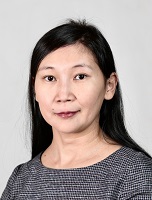Model of language comfort in urban space: New aspects and research methods
DOI:
https://doi.org/10.25178/nit.2023.3.10Keywords:
city linguistic space; model of linguistic comfort; Yakutsk; Yakut languageAbstract
The article presents an analysis of the methodology and methods of studying sociocultural and linguistic processes in a modern city in the context of urbanization processes.
The authors propose a method of complex interdisciplinary research based on sociolinguistic approaches — constructing a model of linguistic comfort of urban communication, which is conditional upon the variability of the urban population by social, professional, age and ethnic characteristics, upon the degree of urbanization, as well as upon the diversity of the main parameters of the language communication in a city, its levels and types, with the multidimensionality of communicative goals and strategies that ensure comfortable communication in all areas of urban life (professional, educational, mundane, etc.). This model will allow to make a prognosis of the development of the language situation in a city in synchronous and diachronic perspectives using methods of the language biography, measuring conflict potential, social mapping, GIS technologies, associative experiment, methods of unfinished sentences.
The city of Yakutsk in the Republic of Sakha (Yakutia) was chosen as an experimental research site. The size and density of the population and heterogeneity of connections between its inhabitants determine the qualitative features of urban culture as a mode of life.
References
Badmaeva, N. V. and Natsak, O. D. (2021) Sovremennaia trudovaia migratsiia iz Kalmykii i Tuvy: ekonomicheskie, sotsiokul’turnye i gendernye aspekty [Modern labor migration from Kalmykia and Tuva: economic, socio-cultural and gender aspects]. The New Research of Tuva, no. 4, pp. 186–205 (In Russ.). DOI: https://doi.org/10.25178/nit.2021.4.14
Barbash, N. B. and Kriuchkov, Yu. A. (1994) Sotsial'noe kartografirovanie kak sposob prostranstvennoi organizatsii dannykh o sotsial'no-territorial'noi differentsiatsii sostava i kachestva zhizni naseleniia [Social cartography as a mode of spatial arrangement of data on socially-territorial differentiation of the structure and the quality of life of population]. In: Prognoznoe sotsial'noe proektirovanie: teoretiko-metodologicheskie i metodicheskie problemy [Forecasting social projection: Theoretical and methodological problems] / ed. by T. M. Dridze. 2nd ed., revised and enlarged. Moscow, Nauka. 304 p. Pp. 115–129. (In Russ.).
Bitkeeva, A. N. (2022) Model’ sotsiolingvisticheskogo prognozirovaniia i aktual’nye tendentsii iazykovoi politiki v regionakh Rossii [Model of sociolinguistic forecasting and the current trends of language policy in the regions of Russia]. The New Research of Tuva, no. 4, pp. 38–52. (In Russ.). DOI: https://doi.org/10.25178/nit.2022.4.3
Bitkeeva, A. N. and Kirilenko, S. V. (2023) Metody izmereniia iazykovogo konfliktogennogo potentsiala [Methods for estimating the language conflict potential]. Vestnik Volgogradskogo gosuniversiteta, no. 4. (Forthcoming). (In Russ.).
Bitkeeva, A. N. and Tsybenova, Ch. S. (2022) Khronika iazykovogo sdviga v tuvinskom iazyke v Respublike Tyva [Chronicle of the Tuvan language shift in the Republic of Tuva]. The New Research of Tuva, no. 4, pp. 6–27. (In Russ.). DOI: https://doi.org/10.25178/nit.2022.4.1
Bylakhyrova, L. V. and Sobakina, I. V. (2022) Vzaimovliyaniia iakutskogo i russkogo iazykov na territorii goroda Viliuiska Respubliki Sakha (Iakutiia) [Mutual influences of the Yakut and Russian languages on the territory of the city of Vilyuysk of the Republic of Sakha (Yakutia)]. Altaistika, no. 2 (5), pp. 37–48. (In Russ.).
Veselkova, N. V. (2010) Mental'nye karty goroda: voprosy metodologii i praktika ispol'zovaniia [Mental maps of the city: Issues of methodology and practice of using]. Sociology: Methodology, Methods, Mathematical Modeling (Sociology: 4M), no. 31, pp. 5–29. (In Russ.).
Vinogradova, O. E. (2013) Napravlennyi assotsiativnyi eksperiment v opisanii semantiki slova [Directed associative experiment for describing word semantics]. Izvestia: Herzen University Journal of Humanities & Sciences, no. 161, pp. 66–73. (In Russ.).
Vinokurova, D. M. and Tomaska, A. G. (2021) Vnutrenniaia i vneshniaia migratsiia v Respublike Sakha (Iakutiia): otnoshenie studencheskoi molodezhi [Internal and external migration in the Republic of Sakha (Yakutia): The attitude of student youth]. Power and Administration in the East of Russia, no. 1 (94), pp. 177–187. (In Russ.). DOI: https://doi.org/10.22394/1818-4049-2021-94-1-177-187
Vinokurova, U. A. (2017) Iakutskie tsennosti v nachale XXI veka [Yakut values at the beginning of the 21st century]. The New Research of Tuva, no. 3, pp. 84–99. (In Russ.). DOI: https://doi.org/10.25178/nit.2017.3.5
Golovnev, A. V. (2022) Severnost' Rossii [Northness of Russia]. St. Petersburg, Museum of Anthropology and Ethnography of the RAS. 450 p. (In Russ.).
Zhirmunsky, V. M. (1936) Natsional'nyi iazyk i sotsial'nye dialekty [National language and social dialects]. Leningrad, Goslitizdat. 297, [2] p. (In Russ.).
Zaitseva, N. G. (2010) Pribaltiisko-finskie iazyki v zerkale lingvisticheskoi geografii [Balto-Fennic languages as mirrored by linguistic geography]. Trudy Karel'skogo nauchnogo tsentra RAN, no. 4, pp. 34–47. (In Russ.).
Ivanova, N. I. (2018) Iazykovye ustanovki sakha v sfere obrazovaniia v kontekste sovremennykh ekstralingvisticheskikh realii (po materialam oprosov v g. Iakutske) [Lingual disposition of Sakha in education in context of modern extralinguistic realities (based on polls in Yakutsk)]. The New Research of Tuva, no. 1, pp. 153–167. (In Russ.). DOI: https://doi.org/10.25178/nit.2018.1.13
Ismagilova, N. V. and Mayorova, O. A. (2019) Iazyk goroda kak sotsiolingvisticheskaia problema: perspektivy izucheniia [City language as a sociolinguistic problem: Study prospects]. Vestnik Bashkirskogo universiteta, vol. 24, no. 4, pp. 900–909. DOI: https://doi.org/10.33184/bulletin-bsu-2019.4.23
Karaulov, Yu. N. (2000) Pokazateli natsional'nogo mentaliteta v assotsiativno-verbal'noi seti [Indicators of national mentality in the associative-verbal network]. In: Iazykovoe soznanie i obraz mira [Language consciousness and the image of the world] : A collection of articles / ed. by N. V. Ufimtseva. Moscow, Institute of Linguistics of the RAS. Pp. 191–206. (In Russ.).
Karinskii, N. M. (1909) Iazyk Pskova i ego oblasti v XV veke [The language of Pskov and its region in the 15th century]. St. Petersburg : Printing House of M. A. Aleksandrov. viii, 207, [2] p. (In Russ.).
Klimova, S. G. (1995) Opyt ispol'zovaniia metodiki neokonchennykh predlozhenii v sotsiologicheskom issledovanii [An experience of using the technique of unfinished sentences in a sociological study]. Sociology: Methodology, Methods, Mathematical Models (Sociology: 4M), no. 5–6, pp. 49–64. (In Russ.).
Koryakov, Yu. B. (2020) Kartografirovanie ural'skikh iazykov [Mapping of Uralic languages]. Acta Linguistica Petropolitana. vol. 16, no. 3, pp. 169–183. (In Russ.). DOI: https://doi.org/10.30842/alp2306573716308
Kuskova, D. V. (2021) Kachestvennye metody v psikhologo-pedagogicheskikh issledovaniiakh [Qualitative methods in psychological and pedagogical research]. Aktual'nye issledovaniia, no. 16 (43), pp. 128–131. [online] Available at: https://apni.ru/article/2254-kachestvennie-metodi-v-psikhologo-pedagogich (accessed 20.05.2023).
Larin, B. A. (1928) O lingvisticheskom izuchenii goroda [On the linguistic study of the city]. In: Russkaia rech' [Russian speech] : A collection of articles / ed. by L. V. Shcherba. Issue 3. Leningrad, Academia. Pp. 61–74. (In Russ.).
Lynch, K. (1982) Obraz goroda [The image of the city] / transl. from English by V. L. Glazychev ; comp. and ed. by A. V. Ikonnikov. Moscow, Stroiizdat. 328 p. (In Russ.).
Milgram, S. (2000) Eksperiment v sotsial'noi psikhologii [The individual in a social world] / transl. from English by N. Yu. Vakhtina et al. St. Petersburg, Piter. 336 p. (In Russ.).
Mitin, I. I. (2017) Mental'nye karty goroda: istoriia poniatiia i raznoobrazie podkhodov [Urban mental maps: History of the term and the diversity of approaches]. Urban Studies and Practices, vol. 2, no. 3 (8), pp. 64–79. (In Russ.).
Noelle, E. (1993) Massovye oprosy: vvedenie v metodiku demoskopii [Umfragen in der Massengesellschaft: Einführung in Die Methoden der Demoskopie] / transl. from German ; ed., opening and closing chapters by S. N. Masurov. Moscow, AVA-ESTRA. 274 p. (In Russ.).
Olshansky, V. B. (1997) Stanovlenie metoda neokonchennykh predlozhenii v Sovetskom Soiuze 70-kh gg. [The development of the method of unfinished sentences in the Soviet Union in the 70s]. Sociology: Methodology, Methods, Mathematical Models (Sociology: 4M), no. 9, pp. 82–97. (In Russ.).
Pakhomov, A. P. (2012) Metodika «Nezakonchennye predlozhenii» Saсks-Levy kak uchebnoe posobie [The sentence completion test (Sacks & Levy) as a training manual]. Experimental Psychology, vol. 5, no. 4, pp. 99–116. (In Russ.).
Popova, Z. D. and Sternin, I. A. (2007) Kognitivnaia lingvistika [Cognitive linguistics]. Moscow, AST ; Vostok — Zapad. 314, [6] p. (In Russ.).
Rossiiskaia Arktika: korennye narody i promyshlennoe osvoenie [Russian Arctic: Indigenous peoples and industrial development] (2016) / ed. by V. A. Tishkov. Moscow ; St. Petersburg, Nestor-Istoriia. 272 p. (In Russ.).
Selishchev, A. M. (1928) Iazyk revoliutsionnoi epokhi: iz nabliudenii nad russkim iazykom poslednikh let (1917–1926) [The language of the revolutionary epoch: From observations on the Russian language of recent years (1917–1926)]. 2nd edn. Moscow, Rabotnik prosveshcheniia. 248 p. (In Russ.).
Trubina, E. G. (2008) Urbanisticheskaia teoriia [Urban theory] : A study guide. Ekaterinburg, Ural State University Publ. 323, [1] p. (In Russ.).
Shakhmatov, A. A. (1916) Vvedenie v kurs istorii russkogo iazyka [Introduction to the course of the history of the Russian language]. Part 1: Istoricheskii protsess obrazovaniia russkikh plemen i narechii [The historical process of formation of Russian tribes and dialects]. Petrograd, Publication of the Student Publishing Committee at the Faculty of History and Philology of Petrograd University. [2], 146, II, [1] p. (In Russ.).
Shor, R. O. (1926) Iazyk i obshchestvo [Language and society]. 2nd ed. Moscow, Rabotnik prosveshcheniia. 152 p. (In Russ.).
Yunakovskaya, A. A. (2011) «Iazyk goroda» kak lingvisticheskaia problema [“City language” as linguistic problem]. Vestnik Omskogo universiteta, no. 3 (61), pp. 193–197. (In Russ.).
Block, J. H. (1973) Conceptions of sex role: Some cross-cultural and longitudinal perspectives. American Psychologist, vol. 28, no. 6, pp. 512–526. DOI: https://doi.org/10.1037/h0035094
Booth, Ch. (1897) Life and labour of the people in London. London, Macmillan & Co., Ltd ; New York, The Macmillan Co. Vol. 9. viii, 455 p.
Booth, Ch. (1903) Life and labour of the people in London. London : Macmillan & Co., Ltd ; New York, The Macmillan Co. Vol. 17 (final). xv, 451 p.
Burgess, E. W. (1925) The growth of the city: An introduction to a research project. In: The city / ed. by R. E. Park, E. W. Burgess and R. D. McKenzie. Chicago, IL, University of Chicago Press. x, 239 p. Pp. 47–62.
Forer, B. R. (1960) Word association and sentence completion methods. In: Projective techniques with children / ed. by A. I. Rabin and M. R. Haworth. New York ; London, Grune & Strutton. xiii, 392 p. Pp. 210–224.
Jacobson, D. (2006) Mental maps. In: Encyclopedia of human geography / ed. by B. Warf. Thousand Oaks, CA ; London ; New Delhi, SAGE Publications. xxviii, 616 p. Pp. 299–301.
Lynch, K. (1960) The image of the city. Cambridge, MA ; London, The Technology Press ; Harvard University Press. vii, 194 p.
Milgram, S. (1977) The individual in a social world: Essays and experiments. Reading, MA, Addison-Wesley Publishing Company. x, 373 p.
Rohde, A. R. (1957) The sentence completion method: Its diagnostic and clinical application to mental disorders. New York, Roland Press. xii, 301 p.
Rotter, J. B. (1951) Word association and sentence completion methods. In: An introduction to projective techniques & other devices for understanding the dynamics of human behavior / ed. by H. H. Anderson and G. L. Anderson. New York : Prentice-Hall, Inc. xxiv, 720 p. Pp. 279–311.
Sacks, J. M. and Levy, S. (1950) The sentence completion test. In: Projective psychology: Clinical approaches to the total personality / ed. by L. E. Abt and L. Bellak. New York : Alfred A. Knopf, Inc. 485 p. Pp. 357–402.
Sanders, R. A. and Porter, P. W. (1974) Shape in revealed mental maps. Annals of the Association of American Geographers, vol. 64, no. 2, pp. 258–267.
Suzman, R. M. (1973) Psychological modernity. International Journal of Comparative Sociology, vol. 14, issue 3–4, pp. 273–287. DOI: https://doi.org/10.1177/002071527301400307
Tendler, A. D. (1930) A preliminary report on a test for emotional insight. Journal of Applied Psychology, vol. 14, no. 2, pp. 122–136. DOI: https://doi.org/10.1037/h0076066
Tolman, E. C. (1948) Cognitive maps in rats and men. The Psychological Review, vol. 55, no. 4, pp. 189–208. DOI: https://doi.org/10.1037/h0061626
Várnai, Z., Szeverényi, S. (2022) Identity and language in an Arctic city: The case of the indigenous peoples in Dudinka. Yearbook of Finno-Ugric Studies, vol. 16, no. 4, pp. 701–720. DOI: https://doi.org/10.35634/2224-9443-2022-16-4-701-720
Published
How to Cite
For citation:
Bitkeeva A. N., Khokholova I. S. and Filippova V. V. Model’ iazykovoi komfortnosti v gorodskom prostranstve: novye aspekty i metody issledovaniia [Model of language comfort in urban space: New aspects and research methods]. New Research of Tuva, 2023, no. 3, pp. 151-170. (In Russ.). DOI: https://doi.org/10.25178/nit.2023.3.10
Issue
Section

This work is licensed under a Creative Commons Attribution-NonCommercial 4.0 International License.

Author(s) license holder(s) grant rights for their work to the journal (grantee of a license) under the simple non-exclusive open license in accordance with Art. 1286.1 «Open license for a research work, work of literature or fine arts», Civil Code of the Russian Federation.
New Research of Tuva publishes articles under the Creative Commons Attribution-NonCommercial license (CC BY-NC).
Since it is an open license, author(s) reserve the right to upload the article to their institutional repository, submit it to another journal (if it allows republications), or republish it on their own website (in full, or in part).
However, several conditions apply here:
a) The republished version must always contain the name(s) and affiliation(s) of the author(s), the original title and the hyperlink to the original version on the New Research of Tuva website;
b) It must be in open access, free of charge, and no category of readers must be in any way whatsoever advantaged over general readership.
c) should the contribution be submitted elsewhere by its author(s) without substantial modification (30% or more of original text unchanged), the body of the article should contain a disclaimer that the original version was published in New Research of Tuva (with a link to the respective page)
The CC-BY-NC is a non-revocable license which applies worldwide and lasts for the duration of the work’s copyright.











